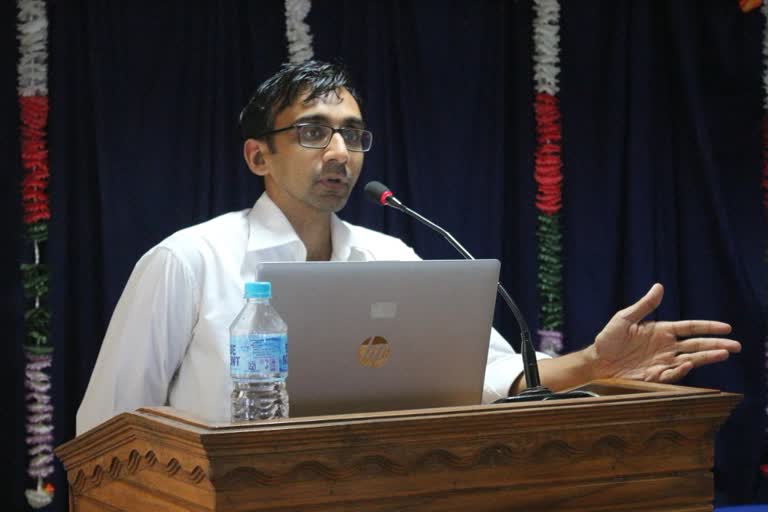Bengaluru: Over two months of lockdown has exposed fault lines in the country’s labour force management. Though time and again studies have shown that around 90% of the country’s work force is in the unorganised sector and little was done to build social security measures to help rootless migrant workers in the need of hour.
To ensure relief measures accessible to migrant labourers the government must have information and data regarding their whereabouts said, Azim Premji University Professor Amit Basole.
"One important lesson that has been learned as a result from migrant crisis that has unfolded over the past few weeks is that we need to be much prepared in terms of information and data on the movements of workers across the country."
Speaking on the benefits of having an accurate database Professor Basole said "Access to good quality data on where people are working, what are their home states and what are their work states help governments in reaching to migrant labourers for providing ration, transport facilities, etc even when they are outside home states.”
Read more:Uber India lays off around 600 employees
Professor also said that the current plight of migrant labourers has taught an important lesson to the government and policy makers.
"So going forward I think an important lesson learnt is to be able to create that kind of database which can be done in a decentralised way through the help of the state governments and the local governments and is available for the policy makers to act," he said.
Equal distribution of labourers
Amit Basole, who is an Associate Professor at the Centre for Sustainable Employment in the Azim Premji University, also opined that the availability of migrant labourers data will play a vital role in equal distribution of labourers. Cities like Mumbai, Delhi, Bengaluru, Hyderabad and Chennai usually have more labourers in the country. If data is available organised flow of labourers can be done.
(ETV Bharat Report)



